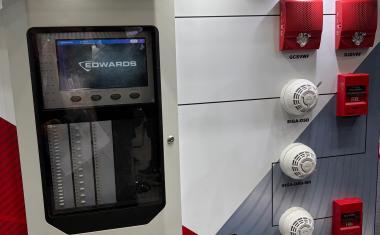Cash Couriers are Put at Risk Due to Council Restrictions
The British Security Industry Association (BSIA) is raising concerns on behalf of the cash and valuables in transit (CViT) industry regarding proposed vehicle traffic and access re...
The British Security Industry Association (BSIA) is raising concerns on behalf of the cash and valuables in transit (CViT) industry regarding proposed vehicle traffic and access restrictions in Rochdale town centre that have the potential of putting cash couriers and the general public at serious risk of harm.
The restrictions, imposed by Rochdale Council and the Highways Department, make it impossible for CViT firms to park in close location to their customers, meaning couriers will need to travel greater distance on foot, increasing the potential risk of ambush from criminal gangs. Already in 2018 there have been over 100 attacks on CViT crews which have involved violence and use of weapons, resulting in some cases to serious injury to both the couriers and members of the public. With local councils increasing the number of pedestrianised areas and restricting access for legitimate vehicles needed to serve the local communities, this issue is becoming a greater concern.
The BSIA is calling for consultation, transparency and collaboration between the industry and related stakeholders in order to agree safe proportionate access and parking in order for couriers to carry out their jobs safely.
Gareth Skinner, Head of Operational Risk, G4S, said: “Delivering cash is a dangerous job and the riskiest part is the time that our crews spend outside, carrying cash from the customer to our secure vehicles. We try to reduce the risks to our crew, customers and the general public by parking as close as possible to the customer’s premises so our crews only ever have to walk a short distance. The further away a vehicle is parked the greater the risk.”
“Locating appropriate and safe parking to enable a short and suitable walking route, under CCTV, avoiding steps and stairs, blind spots and hiding places for would-be attackers to a customer’s premises proves very problematic. It is critical that all stakeholders understand and take account of the risks in any decisions they make that impact on their ability for safe and appropriate access to parking”.
Sarah Staff, Head of SaferCash, said: “There is a perceived illusion that a CViT attack is a victimless crime. CViT attacks often involve serious injuries to retail staff, customers and CviT crews. These crimes have a real impact on staff and local communities, and in many cases untold costs to both people’s lives, property and the industry.”
“A fully collaborative and partnership approach is critical to tackling this kind of criminality. The industry, local councils and businesses and Government agencies need to recognise the unique and critical nature and purpose of delivering and collecting cash, and we must demonstrate best practice and contribute towards the safety of CViT crews and the public to eliminate this type of criminality.”
James Kelly, Chief Executive, BSIA, said: “Our members responsible for the safe delivery of cash play a major role in the mechanics of a vibrant high street, which in many parts of the United Kingdom are already suffering from the effects of online shopping and business rates. Access to cash continues to be a vital part of daily life, and ensuring there is enough in circulation is the role of CViT companies to ensure that a whole range of businesses have access to cash readily so that they can operate smoothly.”
“It is essential that these companies are able to carry out this critical operation without any risk to their staff or the public at large, and therefore we urge Rochdale Council and the relevant stakeholders to work together in order to address the concerns of the industry and to redress this issue.”













